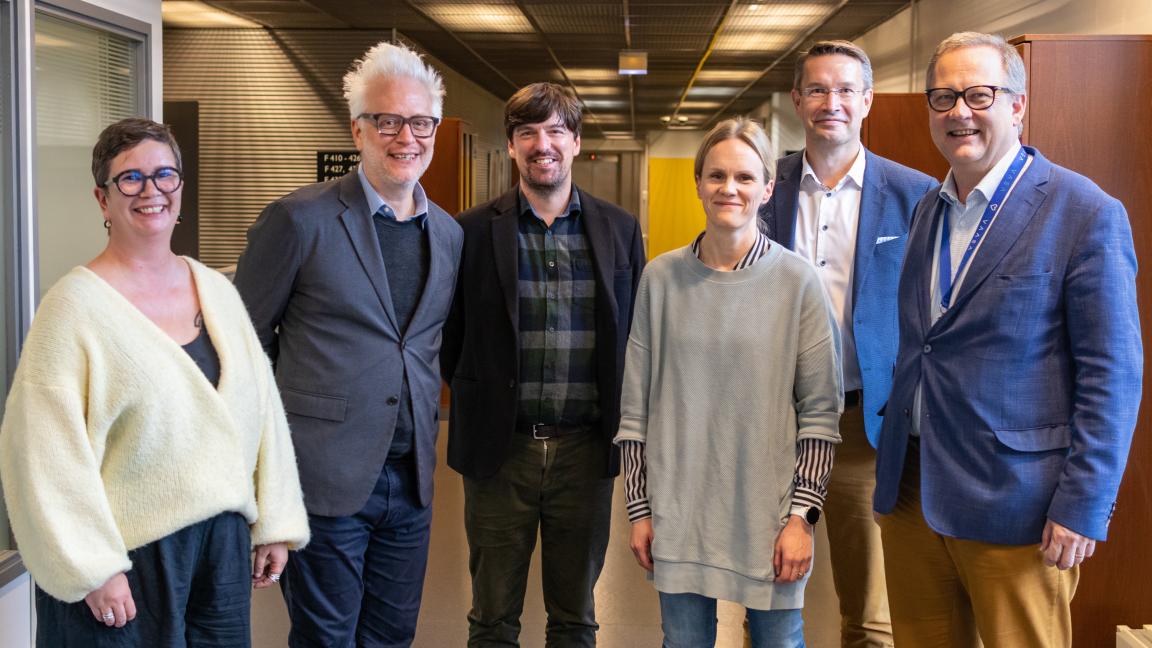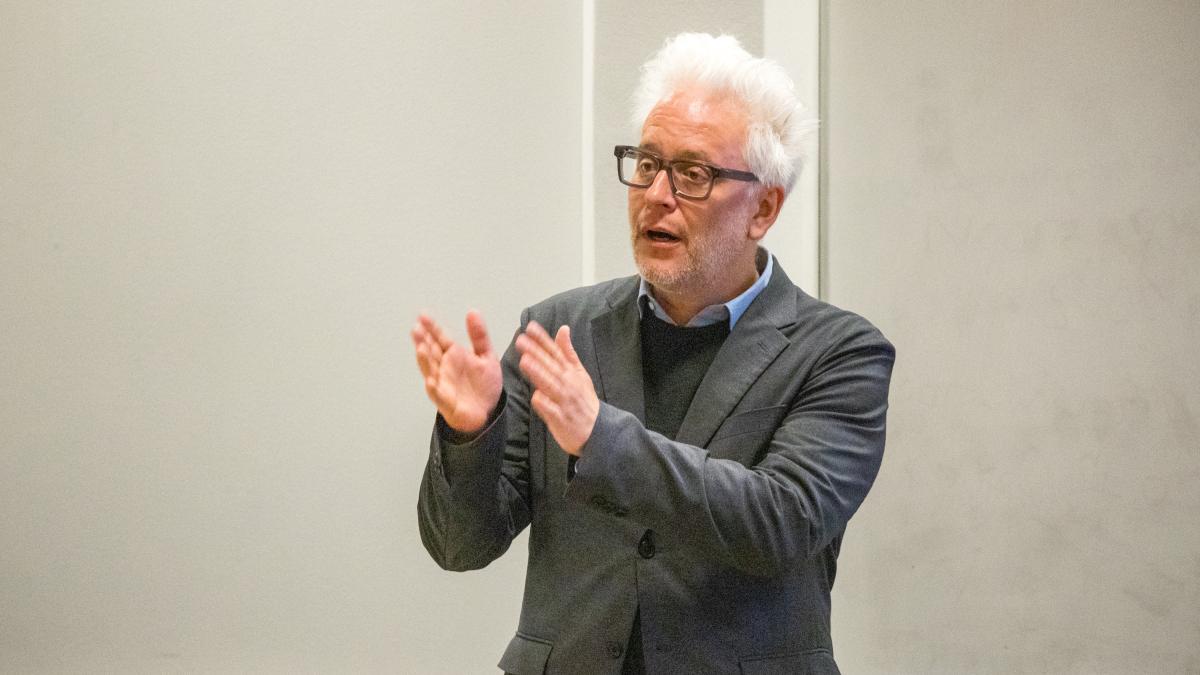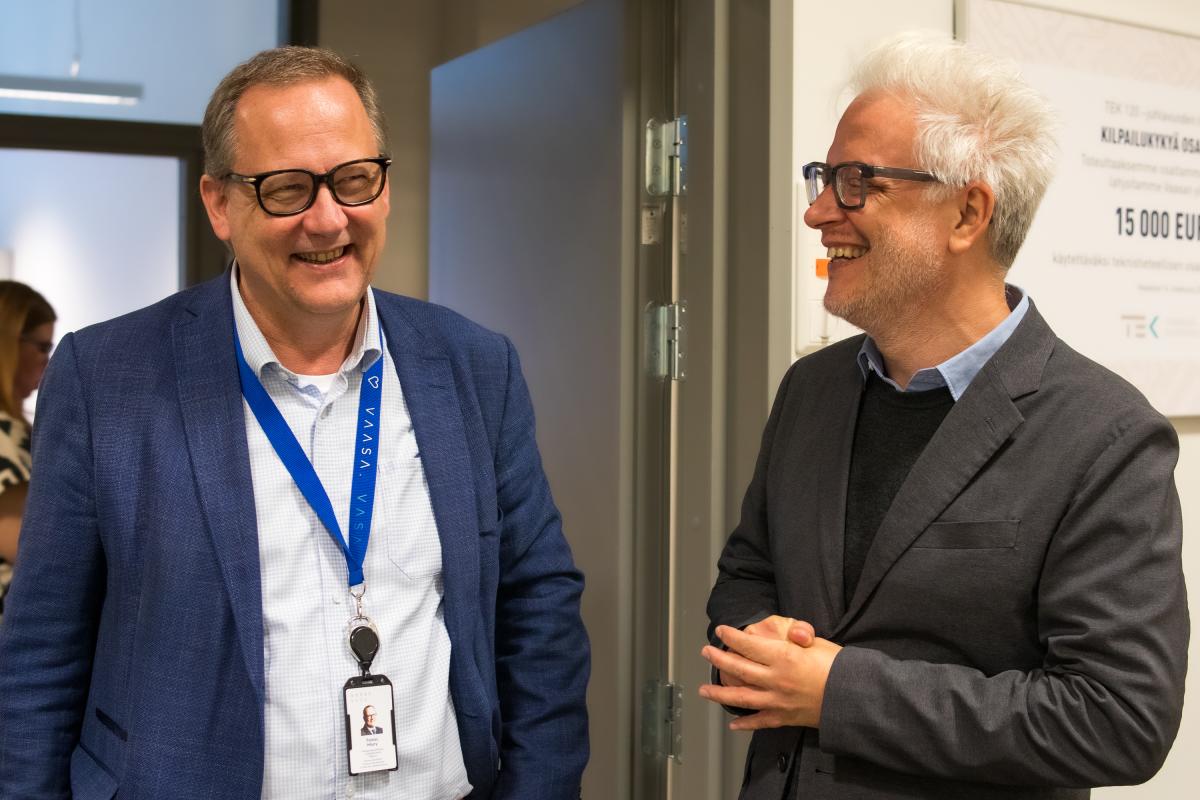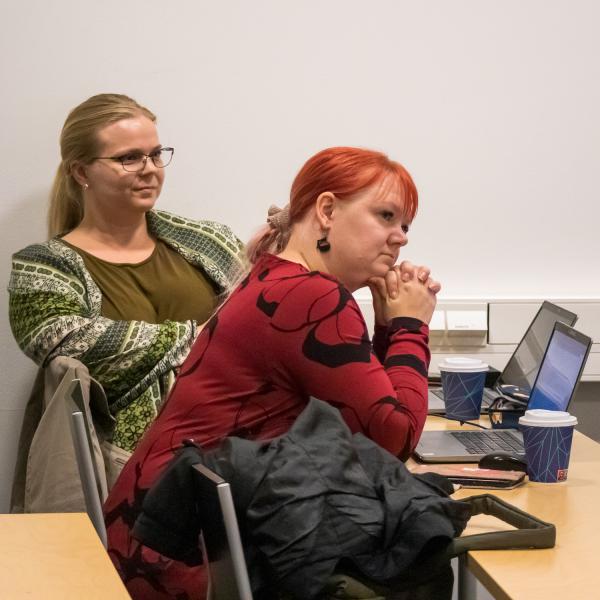Policy and practice relevant research was the theme of this week's summer school for doctoral students at the University of Vaasa. Among the speakers were Brian Castellani, Professor of Sociology at Durham University; Jonathan Wistow, Associate Professor; Tomas Häyry, Mayor of Vaasa; Adam Smale, Dean; and Helka Kalliomäki, Associate Professor at the University of Vaasa.
Brian Castellani, Professor of Sociology at Durham University, reminded the doctoral students that the first step is to identify the questions that different stakeholders need answers to and to map out the power relations, conflicts and contradictions.
– It should be realised that different stakeholders ask different questions and they want different answers. So, involve or engage different stakeholders in the development of your questions. But be critical and remember that not everything stakeholders tell you is gold, it can also be garbage. Also, be aware of the difference between what people want and what they really need.
In Castellani's own experience, most public policy experts, practitioners and funding organisations are biased toward simple, individual-level, short-term solutions that, for example, get voters to re-elect them for another term.
Castellani and Wistow have been working with the InSPIRE consortium. They set out to develop a policy agenda to reduce the impact of air pollution on brain health and dementia. The researchers found evidence that vulnerable groups, such as those living in poor and crowded conditions, are at significant risk of cognitive and brain health problems earlier in life and dementia later in life.
Castellani says the researchers focused on the impact from the very beginning.
– We engaged more than 20 academics and 11 cross-sector stakeholders, with whom we held consensus-building workshops and meetings.
In the discussion moderated by Harri Jalonen, Professor of Social and Health Management Science at the University of Vaasa, Castellani and Jonathan Wistow also highlighted the principle of the three 'U's. To be relevant and impactful, research must be useful, usable and used.
The Mayor of Vaasa, Tomas Häyry, shared his experiences and views on the city's cooperation with universities. There has been a shift from previous individual and sporadic cooperation patterns to more strategic collaboration, for example in the form of new ecosystems.
Ecosystems bring together businesses, universities, research institutions, funding organisations and other stakeholders to drive innovation, new businesses and solutions to improve the well-being of citizens.
How to find the right balance between rigour and relevance?
The two-day event, organised by researchers in administrative sciences from the University of Vaasa and the InnoLab research platform, presented not only advice and tools to promote the relevance of research but also a critical debate on the topic.
– How to find the right balance between scientific rigour and research relevance? And what can funders and universities do to promote this balance? said Helka Kalliomäki, Associate Professor of Innovation Policy at the University of Vaasa.
Adam Smale, Dean of the School of Management, presented the University of Vaasa's new career model to the doctoral students. The academic career paths include a tenure track, a project-oriented research track and a teaching-oriented track.
The balance between academic rigour and relevance of research can be achieved, for example, through a division of labour and by researchers in different tracks working together in a phenomenon-based way.
Main photo: Paula Rossi, Brian Castellani, Jonathan Wistow, Helka Kalliomäki, Harri Jalonen, and Tomas Häyry.



